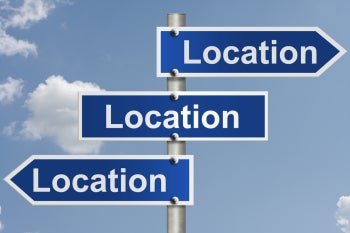
There is no central vicinity for the foreign exchange market, regularly referred to as the forex (FX) market. Transactions in the overseas change market take area in many specific forms, 24 hours a day, thru exclusive channels all over the globe, and anyplace one foreign money is exchanged for another.
The Forex Market
The overseas trade market is regarded one of the most exciting fast-paced monetary markets. Historically, the overseas exchange market has been on hand only to massive institutions, central banks, and the wealthy. However, on line trading platforms have opened up the market to all persons who would like to explore on-line currency trading.
Currency traders make predictions based totally on global monetary indicators, and buy and promote accordingly. Traders use records to analyze currencies and international locations and practice financial forecasts to predict movements in a currency’s value. Foreign exchange buying and selling is characterized by using excessive leverage. This is volatile but it offers traders the opportunity to acquire dramatic beneficial properties and losses with a long way much less capital than is required for different markets.
The FX market is decentralized and distributed, with no actual central location.
Instead digital trading is located inside the following locales:
- retail foreign exchange brokers
- central banks
- commercial businesses
- banks
While a 24-hour market presents a full-size advantage for many institutional and character traders, it also has its drawbacks due to the fact it guarantees liquidity and the probability to exchange at any viable time. Although currencies can be traded anytime, a trader can only monitor a function for so long. This skill that there will be times of ignored opportunities, or worse – when a leap in volatility will lead to a motion towards an established role when the dealer is not around. A trader needs to be conscious of instances of market volatility and decide when is first-class to minimize this risk based on their trading style.
Traditionally, the market is separated into three top activity sessions: the Asian, European and North American sessions. These three intervals are additionally referred to as the Tokyo, London and New York sessions. Sometimes a fourth, Australian (Sydney) session is used that fills in the gap between New York and Tokyo hours.These country wide or city names are used interchangeably, as the cities represent the most important economic facilities for each of the regions. The markets are most active when these three powerhouses are conducting business, as most banks and corporations make their everyday transactions in these areas and there is a higher attention of speculators online.
Forex Market Hours Trading Sessions
Retail Forex Brokers
These brokers offer speculative buying and selling to the individual retail trader. This vicinity of the forex market is very small in contrast to the total quantity of foreign money exchanged worldwide. Forex brokers grant foreign money merchants access to a buying and selling platform that allows them to buy and sell overseas currencies. Through these brokers, foreign money traders can get entry to the 24-hour currency market.
Central Banks
By buying and selling currencies, central banks attempt to manipulate their money supply, pastime rates, and inflation. Whether authentic or not, international locations frequently have goal trade charges for their currencies, and a nation’s central financial institution can frequently use their reserves of countrywide and foreign foreign money to try and stabilize the market for their currency.
Commercial Businesses
Whenever a business enterprise has to purchase from or sell to a employer in a overseas nation, a overseas exchange transaction is probably to occur. For example, a U.S.-based organisation might also need to purchase euros to pay an invoice to a French company, or the French agency can also have to purchase U.S. bucks to pay a U.S.-based invoice. In each of these cases, a overseas trade transaction wants to occur. Companies that deal with foreign customers or suppliers regularly take this one step similarly and purchase or sell currencies as a hedge towards future exchange charge movement. By locking into present day exchange rates, groups can take exchange rate threat out of the equation.
Interbank Market
The interbank market represents the biggest component of the forex market and is inclusive of the above buying and selling areas. Customers often flip to banks to intermediate their foreign alternate transactions, and banks often alternate their own bills as well.
Because there is no central area for foreign exchange trading, there is no central physique controlling expenditures and the movements of many players. This is a new and profitable region for speculation, however investors have to be aware of and heed the dangers when trading in overseas exchange.
